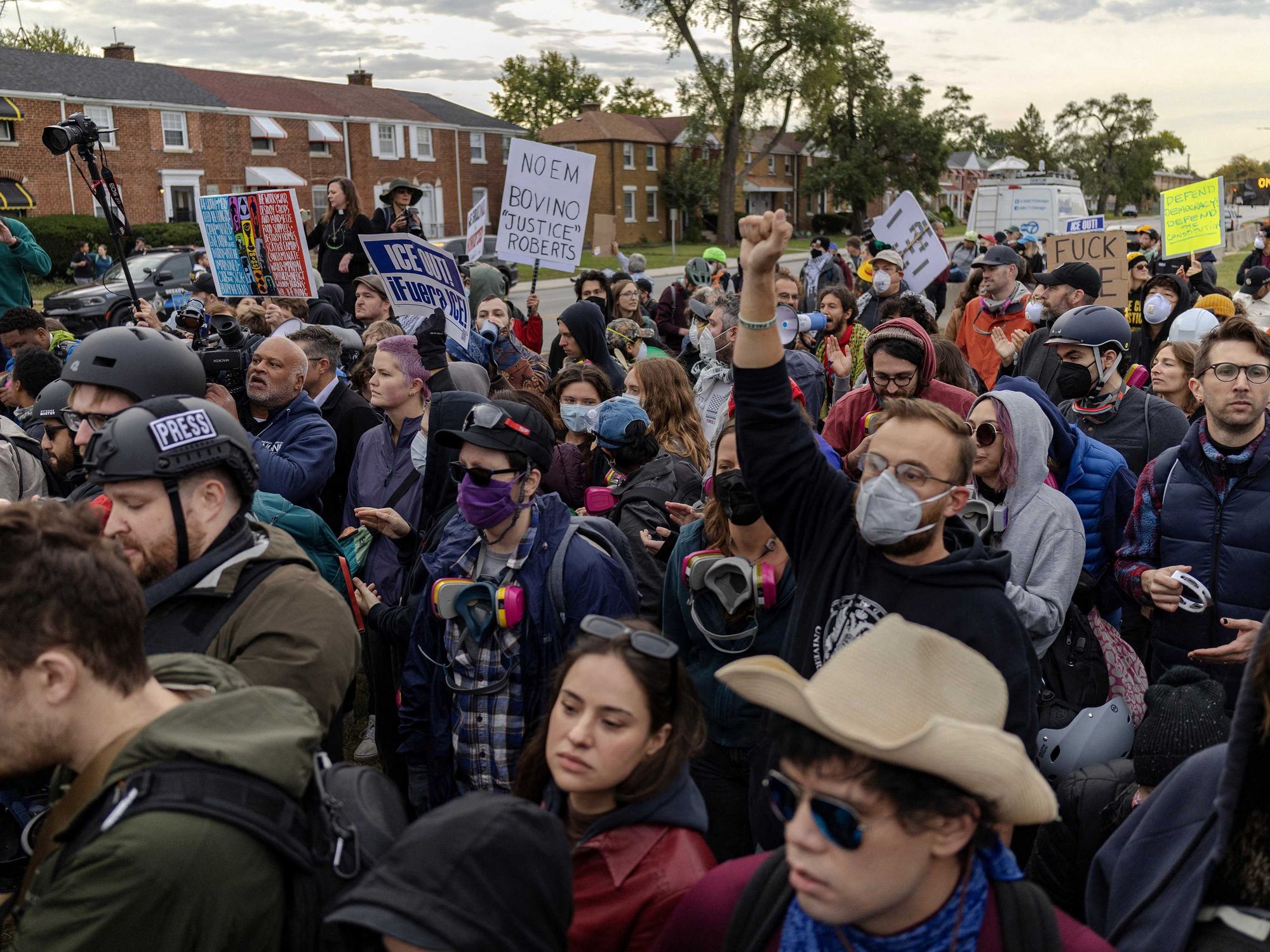Wes Anderson’s new Netflix shorts are the latest case for the form.
The short film is a neglected form of American entertainment, prevalent — you can find them most anywhere, and pretty much every filmmaker has made a few — and yet barely watched or talked about. That’s strange, when you think about it. We talk about movies (by which we mean features), and we talk about TV. Paramount recently uploaded all of Mean Girls to TikTok, in 23 separate clips, and the platform’s subscriptions spiked.
Short films, however, dwell in a liminal space between movies and TV, and they simply don’t get the same respect and interest. Even anthology shows like Black Mirror, which might be described as a collection of short films, are designed to generate meaning through their juxtaposition. I know the stand-alone short film is still a rarity on my entertainment menu, and I suspect I am not alone.
In a sense that may be because nobody really knows what a short film … is. According to the Academy of Motion Pictures Arts and Sciences — the group that gives out the Oscars, including three for short films (animated, live action, and documentary) — a short film runs a maximum of 40 minutes, including credits. That’s about the length of a network TV drama episode, once you strip out the commercials, but a short film nominee could be, in theory, the length of an Instagram Reel.
A feature-length film, according to the Academy, is anything over 40 minutes. But that has little to do with the length attributed to most movies. (When was the last time you went to the theater for a movie that was, say, 61 minutes long?) It’s vanishingly rare for any feature film to be less than around 82 minutes.
I tend to think of a short film as being an hourish and under, with its own defined arc, and a feature as anything longer. But when you think of it, the distinction is almost meaningless and randomly invented, the product of years of business and technological decisions and not having to do with any natural timeframe. Why not sit down and watch something for 25 minutes?
Netflix
There’s something uniquely pleasurable about watching a tight, elegant short that’s exactly the length it needs to be, not inflated to an arbitrary length. Topics that would be brutal at full length (palliative care, for instance, as in the 2019 Oscar-nominated End Game) are not just bearable but moving at 40 minutes. Jokes and punchlines land perfectly in shorts, without requiring a lot of exposition or character development. (Those of us raised on Pixar shorts know this well.) Short films give filmmakers permission to take risks and play, in part because the audience might tolerate experimentation or frustration better if they know it won’t take up their whole afternoon.
Shorts generally get the most airtime at film festivals, and some garner significant fanfare. Just this year, The Wonderful Story of Henry Sugar premiered at the prestigious Venice Film Festival. Pedro Almodovar’s 31-minute gay cowboy film, Strange Way of Life, starring Ethan Hawke and Pedro Pascal, premiered at Cannes this year and has been making the festival rounds ever since. (It’s bankrolled in part by Saint Laurent Productions, part of the Yves Saint Laurent fashion empire.) Once Within a Time, an experimental creation fable from the iconic documentarian Godfrey Reggio, clocks in at 52 minutes, which is just right for the material, and its release was accompanied by a retrospective series at the Museum of Modern Art in New York.
And consider the recent shorts from Wes Anderson, whose work is easy for me to admire but difficult for me to love. His stylistic tics, not in any sense bad, are difficult for me to track at length. I find myself rewinding and rewinding because I keep getting snagged on details or zone out while narrators talk. By about the 40-minute mark, my brain has entered stasis. (Yes, I always take a couple cracks at watching before I write a review.)
Luckily, The Wonderful Story of Henry Sugar — one of a whopping four Anderson films that dropped on Netflix last week — clocks in at a cool 39 minutes, and it’s the longest of them. Anderson has adapted author Roald Dahl before (in 2009’s The Fantastic Mr. Fox), and as is his custom, he works with a bevy of familiar actors, like Benedict Cumberbatch, Ralph Fiennes, Rupert Friend, and Ben Kingsley. (New to Anderson’s stable are Dev Patel and Richard Ayoade.)
Henry Sugar and the three other films (The Swan, The Rat Catcher, and Poison, each of which run 17 minutes) are also recognizably Andersonian in their aesthetic, design, and thematic obsessions. I sat down to watch the longest, Henry Sugar, with a little trepidation, knowing my spotty history with Anderson. But though I did have to rewind a couple times, I found myself buzzing with enjoyment. Henry Sugar is the story of a very wealthy cad who goes through some very unexpected personal growth, and as I watched I could also feel myself growing: Did I finally feel Wes Anderson’s work, in my very soul?
Maybe. But watching the other three, much shorter films — all of which are pretty intense — proved that they’re enjoyable and digestible because they simply begin and end pretty quickly. I didn’t have to lock in for an hour and a half. I could throw it on and have a whole, lovely, freestanding cinematic experience with my morning coffee.
If anything good can come out of the streaming revolution, it could be (or, at least, could have been) the cultivation of an audience and a market for short films. That would go a long way toward expanding the voices, perspectives, stories, styles, and creative visions we encounter. Film students, budding artists raising funds, filmmakers who want to test out a concept or technique, and directors from marginalized regions and communities who can’t get major studio or investor backing often start out making shorts. With an audience and enough interest, that could be funneled into further work — not just directing a big-budget movie, but telling more stories that work best at shorter lengths.
Of course, that would require us to go find them, and the companies that distribute them to put more heart into directing audiences toward them. You probably have easy access to some world-class shorts right now. Netflix, like other streamers, has an entire “Shorts” genre category under “Movies” on its site, which includes many documentaries, but scripted fiction and animated shorts, too. The internet, quite literally, is awash with short films, whether on YouTube or some specialty site.
The Anderson shorts weren’t particularly easy to find on Netflix in the first few days after release, and it’s not totally clear to the casual viewer that they’re linked without digging into the interface. Streaming platforms have a long way to go before they figure out how to coax viewers into watching the shorts.
But in a world where so much attention is drawn toward very short-form content — recall TikTok Mean Girls — this can’t be rocket science. Maybe The Wonderful Story of Henry Sugar is a feint in the right direction. Who says how long a movie has to be, anyway?
The Wonderful Story of Henry Sugar, The Swan, The Rat Catcher, and Poison are all streaming on Netflix.




